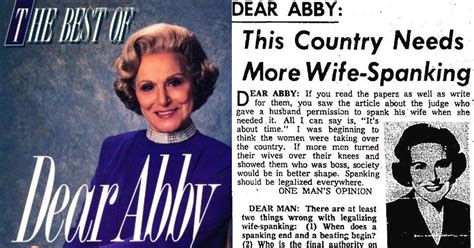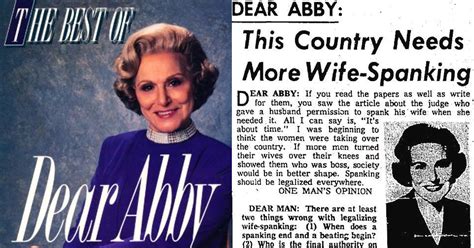
A woman is seeking advice from Dear Abby after discovering her boyfriend of six years may still be married, despite his claims of being divorced. The reader, identified as “Suspicious in the South,” details how her boyfriend refuses to show her official divorce papers, offering only excuses and vague explanations, leading her to question the legitimacy of his single status and the future of their relationship.
A woman identified as “Suspicious in the South” wrote to the syndicated advice columnist Dear Abby, seeking guidance on a troubling situation: her boyfriend of six years claims to be divorced, but consistently avoids providing any concrete proof, raising serious doubts about his marital status and the foundation of their long-term relationship. The letter writer outlined a series of red flags, including the boyfriend’s repeated delays and excuses when asked to produce official divorce documentation. This lack of transparency has prompted “Suspicious in the South” to question whether she is unknowingly involved in an adulterous relationship, and what steps she should take to protect herself and her future. Abby responded with a firm warning, advising the woman to conduct her own investigation and prepare to end the relationship if her boyfriend’s claims remain unsubstantiated. The advice underscores the importance of honesty and transparency in romantic partnerships and the potential legal and emotional ramifications of unknowingly entering into a relationship with someone who is still legally married.
The core issue revolves around trust and verifiable facts. “Suspicious in the South” has reportedly asked her boyfriend multiple times to provide evidence of his divorce, but each request has been met with resistance. According to the letter, the boyfriend initially stated that he would retrieve the documents from his attorney but has failed to do so. He later claimed that the divorce papers were lost or misplaced, offering to obtain copies but never following through. This pattern of avoidance has eroded the woman’s trust and prompted her to seek external advice.
Dear Abby’s response was direct and unequivocal. She advised the woman to take proactive steps to ascertain the truth, rather than relying solely on her boyfriend’s potentially misleading statements. Abby suggested that “Suspicious in the South” independently verify her boyfriend’s marital status by checking with the county clerk’s office in the county where the divorce supposedly took place. This would provide concrete evidence, either confirming his divorced status or revealing that he is still legally married. Abby further cautioned that if the boyfriend’s claims are proven false, “Suspicious in the South” should seriously consider ending the relationship, emphasizing the importance of honesty and integrity in a committed partnership.
The situation highlights a common dilemma in modern relationships: the reliance on trust versus the need for verifiable information. In an era where online records are readily accessible, the boyfriend’s reluctance to provide proof of his divorce raises significant suspicion. It also underscores the potential legal and emotional consequences of entering into a relationship under false pretenses. If the boyfriend is indeed still married, “Suspicious in the South” could be exposed to legal liabilities, including accusations of adultery, depending on the laws of her state. Furthermore, the emotional toll of discovering that her partner has been dishonest about such a fundamental aspect of his life could be devastating.
The advice given by Dear Abby reflects a pragmatic approach, prioritizing self-protection and the need for clarity. By encouraging “Suspicious in the South” to take independent action, Abby empowers her to make an informed decision about her future. The situation serves as a cautionary tale, reminding individuals to exercise due diligence and to prioritize honesty and transparency in their romantic relationships.
The importance of verifying information extends beyond romantic relationships. In various aspects of life, from business dealings to personal transactions, verifying facts and conducting due diligence is crucial to avoid potential fraud, misrepresentation, and legal complications. The situation faced by “Suspicious in the South” underscores the universal principle of verifying claims and protecting oneself from potential deception.
The scenario also raises ethical questions about the boyfriend’s behavior. If he is indeed still married, he is not only deceiving his girlfriend but also potentially violating his marital vows and legal obligations to his spouse. Such actions can have far-reaching consequences, impacting not only his current relationship but also his existing marriage and any children involved.
The case also indirectly reflects societal attitudes toward marriage and divorce. While divorce is increasingly common, it remains a legally and emotionally complex process. The stigma associated with divorce can sometimes lead individuals to be less than forthcoming about their marital status, as potentially exemplified in the behavior of “Suspicious in the South’s” boyfriend. However, as Dear Abby points out, honesty and transparency are paramount in building and maintaining healthy relationships.
The advice from Dear Abby also touches upon the importance of self-respect and setting boundaries. By suggesting that “Suspicious in the South” should end the relationship if her boyfriend is lying, Abby emphasizes the need to prioritize one’s own well-being and to refuse to tolerate dishonesty. This message is particularly relevant in situations where individuals may be tempted to overlook red flags or make excuses for their partner’s behavior due to emotional attachment or fear of being alone.
In conclusion, the situation described in the Dear Abby column serves as a reminder of the importance of trust, honesty, and verifiable information in romantic relationships. It also highlights the potential legal and emotional consequences of entering into a relationship under false pretenses and the need to prioritize self-protection and self-respect. Dear Abby’s advice to “Suspicious in the South” is a call to action, urging her to take control of the situation and make an informed decision about her future based on verifiable facts, not just blind faith.
The core of the problem stems from the boyfriend’s consistent evasion. He hasn’t simply forgotten the documents once; he’s created a pattern of delay and excuse-making. This pattern alone is enough to warrant suspicion, regardless of any other factors. It creates an environment of distrust and uncertainty that can be incredibly damaging to a relationship. The woman is right to question his honesty. If he had nothing to hide, providing proof of his divorce would be a simple and straightforward task. His resistance suggests that there’s something he doesn’t want her to know.
Dear Abby’s recommendation that the woman independently verify her boyfriend’s marital status is sound advice. It’s a proactive approach that empowers her to take control of the situation and determine the truth for herself. Checking with the county clerk’s office is a relatively simple process that can provide definitive answers. It eliminates the reliance on his word and provides concrete evidence to either confirm or deny his claims. This step is crucial for her peace of mind and for making an informed decision about the future of her relationship.
The situation also serves as a reminder of the importance of early transparency in relationships. While it’s understandable that people might be hesitant to share deeply personal information early on, fundamental details like marital status should be disclosed honestly and openly. Waiting six years to reveal potentially false information is a significant breach of trust that can have lasting consequences. Open communication from the outset can prevent misunderstandings and build a stronger foundation for a healthy relationship.
Furthermore, the woman’s hesitation to confront her boyfriend directly may be a sign of underlying issues in the relationship. If she feels unable to express her concerns and demand honesty, it suggests a power imbalance or a lack of open communication. Healthy relationships are built on mutual respect and the ability to address difficult topics honestly and constructively. Seeking professional counseling might be beneficial, regardless of the outcome of her investigation into his marital status, to address these underlying issues and improve communication within the relationship.
The legal ramifications of being in a relationship with someone who is still married can be significant, although they vary depending on the specific laws of the jurisdiction. In some states, adultery is still a criminal offense, and the woman could potentially face legal charges if she knowingly engages in a relationship with a married person. Even if adultery is not a criminal offense, it can have legal consequences in divorce proceedings, potentially affecting alimony payments and asset division. Moreover, if the couple were to attempt to marry while the boyfriend is still legally married, the marriage would be considered invalid, and the woman could face legal challenges in establishing her rights and entitlements.
Beyond the legal aspects, the emotional toll of discovering that a partner has been dishonest about their marital status can be devastating. It can lead to feelings of betrayal, anger, and profound disappointment. The woman may question her own judgment and struggle to trust others in the future. The experience can also damage her self-esteem and lead to feelings of isolation and loneliness. It’s essential for her to seek emotional support from friends, family, or a therapist to cope with the emotional aftermath of this situation.
The situation also raises questions about the boyfriend’s motivations. Why would someone lie about being divorced for six years? Is he afraid of commitment? Is he still emotionally attached to his previous spouse? Is he trying to avoid the financial responsibilities of divorce? Understanding his motivations might provide some insight into his behavior, but it doesn’t excuse his dishonesty. Regardless of his reasons, his actions have caused significant harm to his girlfriend and have jeopardized their relationship.
In cases like this, it’s often helpful to consider the perspective of the existing spouse. If the boyfriend is indeed still married, his actions are not only deceiving his girlfriend but also betraying his wife. The wife may be unaware of his infidelity and may be suffering emotionally as a result. His actions could have a devastating impact on his family and could lead to significant legal and financial consequences for him.
Ultimately, the decision of whether to stay or leave the relationship rests with “Suspicious in the South.” However, Dear Abby’s advice provides a clear framework for making that decision: verify the facts, assess the level of dishonesty, and prioritize her own well-being. If the boyfriend is indeed still married, ending the relationship may be the most difficult but also the most empowering choice. It sends a clear message that she values honesty and self-respect and that she will not tolerate being deceived.
The situation also underscores the importance of online background checks and due diligence when entering into a serious relationship. While it’s not always necessary or appropriate to conduct extensive investigations into a potential partner’s past, verifying basic information like marital status can prevent significant heartache and legal complications down the road. There are numerous online resources available that can provide information about public records, including marriage and divorce certificates. Utilizing these resources can help individuals make informed decisions about their relationships.
In addition to checking public records, it’s also important to be aware of red flags and trust one’s instincts. If something feels off or if a partner is consistently evasive or secretive, it’s important to address those concerns directly and seek clarification. Ignoring red flags can lead to more significant problems down the road. Open communication and a willingness to confront difficult topics are essential for building a healthy and honest relationship.
Dear Abby’s advice serves as a critical reminder: protect yourself first. Don’t allow yourself to be manipulated or deceived. Demand honesty and transparency from your partner, and be prepared to walk away if your trust is betrayed. Your emotional well-being and legal security are paramount.
The letter from “Suspicious in the South” and Dear Abby’s response resonate with many individuals who have experienced similar situations in their own relationships. It highlights the universal need for honesty, trust, and self-respect in intimate partnerships. It also underscores the importance of verifying information and protecting oneself from potential deception. The situation serves as a cautionary tale, reminding us that even in the age of online dating and instant communication, fundamental principles of honesty and transparency remain essential for building and maintaining healthy relationships.
Finally, it’s important for “Suspicious in the South” to remember that she is not alone. Many people have experienced betrayal and deception in their relationships, and there are resources available to help her cope with the emotional aftermath of this situation. Seeking support from friends, family, a therapist, or a support group can provide her with the strength and resilience she needs to navigate this difficult time and move forward with her life.
Frequently Asked Questions (FAQ)
1. What should I do if my partner is reluctant to show me their divorce papers?
If your partner consistently avoids providing proof of their divorce despite your repeated requests, it’s a significant red flag. Dear Abby advises independent verification by checking with the county clerk’s office where the divorce supposedly took place. The reluctance alone warrants suspicion and investigation, as it could indicate dishonesty or a deliberate attempt to conceal their true marital status. A pattern of excuses and delays should be taken seriously.
2. How can I independently verify if someone is divorced?
You can verify someone’s divorce status by contacting the county clerk’s office in the county where the divorce was allegedly finalized. Divorce records are generally public information, and you can request a copy of the divorce decree. Some counties may also offer online access to these records. This independent verification is crucial to avoid relying solely on your partner’s potentially misleading statements.
3. What are the potential legal risks of being in a relationship with someone who is still married?
The legal risks vary depending on the jurisdiction. In some states, adultery is still a criminal offense, and you could face legal charges if you knowingly engage in a relationship with a married person. Even if adultery is not criminalized, it can impact divorce proceedings, potentially affecting alimony and asset division. If you were to attempt to marry someone who is already married, the marriage would be invalid, and you could face legal challenges regarding your rights and entitlements. Consulting with an attorney is advisable to understand specific state laws.
4. What are the emotional consequences of discovering my partner lied about being divorced?
Discovering that your partner lied about their marital status can have devastating emotional consequences, including feelings of betrayal, anger, disappointment, and a loss of trust. You may question your judgment and struggle to trust others in the future. The experience can also damage your self-esteem and lead to feelings of isolation and loneliness. Seeking emotional support from friends, family, or a therapist is crucial to cope with the emotional aftermath.
5. Is it ever acceptable to stay in a relationship with someone who lied about being divorced?
The decision to stay or leave is a personal one. However, Dear Abby strongly suggests ending the relationship if the boyfriend is lying. Staying would require a significant rebuilding of trust, which may be difficult or impossible. You must consider the long-term impact of the dishonesty on your emotional well-being and the future of the relationship. The priority should be your own self-respect and security. If the deception extends to other areas of the relationship, it may be a pattern of behavior that is unlikely to change. If the partner demonstrates genuine remorse and actively works to rebuild trust, it might be possible to consider reconciliation, but only after careful consideration and possibly with the help of professional counseling.









